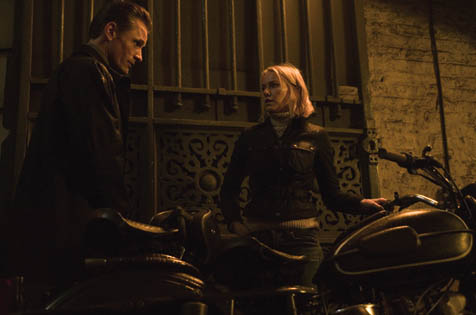Eastern Promises
Naomi Watts and Viggo Mortensen star in a film written and directed by David Cronenberg.

Few have mastered the art of grit and wisdom filmmaking like David Cronenberg. The Canadian-born director has been dealing elegantly with exposed membrane, experimental surgery, and other kinky quirks for years, starting with The Fly, and including Dead Ringers and Crash. Here, he’s up to his artful tricks again with Eastern Promises, an edgy though somehow graceful tale about the savagery and severe moral codes of the Russian mafia in London, with typically dark-and sometimes darkly funny-undercurrents.
Casting-wise, Cronenberg gains dignity through the quiet magnetism of Viggo Mortensen and Naomi Watts, returning after their dynamic chemistry in A History of Violence. These actors’ deep-running still-water qualities become the core of a film blessed with a well-constructed script and an inspired director’s uncanny vision.
As a Siberian-born “driver/undertaker” and combination bad dude/good guy, Mortensen coolly commands the screen, even when he’s forced into a memorably grisly fight scene, dressed only in tattoos. Meanwhile, Watts plays a righteously indignant midwife at Trafalgar Hospital, who moves into the dangerous crosshairs of the vory v zakone mafia. She is half-blinded by her compassion for an orphaned child and a deceased young sex slave, whose diary entries haunt the film.
Another of Cronenberg’s faithful allies in achieving his delicate balancing act is composer Howard Shore, who has created scores for some of the best Cronenberg films. Here, Shore has cooked up another hypnotically lush and melancholic orchestral arrangement that colors the emotional palette of what we’re seeing in ways that can seem at odds with what we expect.
As with most of the best directors, music is more than an afterthought for Cronenberg. What gives his films such power is their aspiration to the very qualities of music, which can be soothing and disturbing one moment after the next, or even simultaneously layered. In this case, that means moving from severed jugulars and vengeful thuggery to pathos of the closest kind. It’s all part of the human tragicomedy, through the lens of a hard-edged softy.



